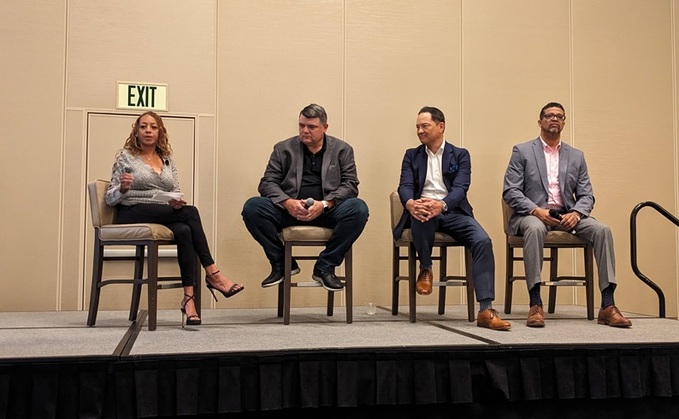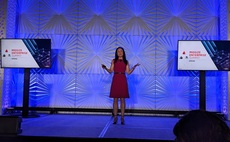
Left to right: MES Computing editor Samara Lynn; John Michael Gross; Joel Wolfe; and RC Woodson
Mid-size firms can't compete with Big Tech on salary. But there are other ways to attract - and keep - staff if you understand their motivations.
North America is in the grip of a harsh drought. Precious resources are trickling away from where they've traditionally pooled and flooding towards the US West coast.
As you might have guessed, we're not talking about water, but talent (though the water situation isn't great, either). Young IT professionals, tempted by both the cash and cachet of Big Tech, are leaving home for Seattle and California.
To add insult to injury, some of those new starters take a job closer to home at first: a training ground to bolster their CV before moving out West.
"People are graduating from us to Google or Microsoft," said RC Woodson, SVP and CIO of the Bristol Bay Native Corporation. Even though his company is based in Alaska, it's "only a three-hour flight" to Microsoft's home in Seattle.
John Michael Gross, CIO at Cascade Environmental, is based in the Pacific Northwest and competes even more directly for staff with Big Tech. He says he "got tired of training people to go and work" at these companies.
The two panellists, speaking at MES Spring this week – a flagship event for our North American sister brands, the MES IT Network and MES Computing – had different approaches to the challenge.
Offer more than money (but money helps)
Gross has taken "everything that wasn't core to the business," like the helpdesk, sysadmin and dev test, and outsourced it. "I started investing in bringing the architects in, so that the people who were running our core IP and setting our strategic direction" were happy to stay in the company.
RC has also tried investing in talent: he's paying "thirty-five to forty percent more" than pre-pandemic, which he blames partly on a "generation of entitlement." And it's still not enough to keep people in place.
"We've had to get creative and start a technical training school, we've got a vocational technology school, we're in high schools. We're trying to get these kids early and teach them what we need – not today, but five or ten years from now."
A dedicated training centre is the Holy Grail for many, but is time- and resource-intensive. Final panellist Joel Wolfe - VP of technology at Medallion Midstream – suggested looking to internships instead.
"It's pretty easy to institute an internship programme, a consistent internship programme for IT. It's a great way to introduce folks [to your business] – like RC said, grab them early."
Even a simple internship programme puts extra demands on your time. Gross found his team lacked the bandwidth to work with interns – "Just setting them up to be task-oriented is not enough," he said, because that doesn't teach them the critical thinking and reasoning skills that are so important.
Wolfe suggested thinking of internships like a project: "Who owns it? Who will run it after you build it?
"You have to put the time in."
Managing expectations
With new graduates expecting "$200,000 right out of school," it's not hard to see where the "generation of entitlement" view comes from.
Some Big Tech firms might be willing to pay that for a new graduate, but most mid-size companies don't have that sort of cash lying around.
"We can't do that, so I sit down with them and provide realistic feedback," says RC. "Here's where you are, you're coming in as a helpdesk technician, this is the salary. If you get these certifications and work with my infrastructure team there's a possibility for you to move up.
"I show them a career path… If we're honest with them from the beginning, then they know where they can move in the market."
Everyone wants fair compensation, but that's only one part of Gen Z's motivations. Making a difference is important, too.
"I talked to a young man about three months ago. He felt some kind of way about being a helpdesk technician. I walked him through why he does what he does and how it ties into our mission… Understanding his role and its importance to the organisation gave him the warm fuzzy feeling this generation is looking for."
Wolfe agreed, saying younger workers are seeking "a sense of accomplishment and pride in what they do."
None of this is to say you can afford to under-pay new starters, especially in the middle of a talent drought; but you can fight the pull of Big Tech in other ways (especially as the liberal, progressive ethos these firms first espoused have given way to shareholders' demands, military contracts and lobbying). Give people a reason to stay, whether that's a clear progression path or the knowledge that they're making a difference; it will pay dividends.






















